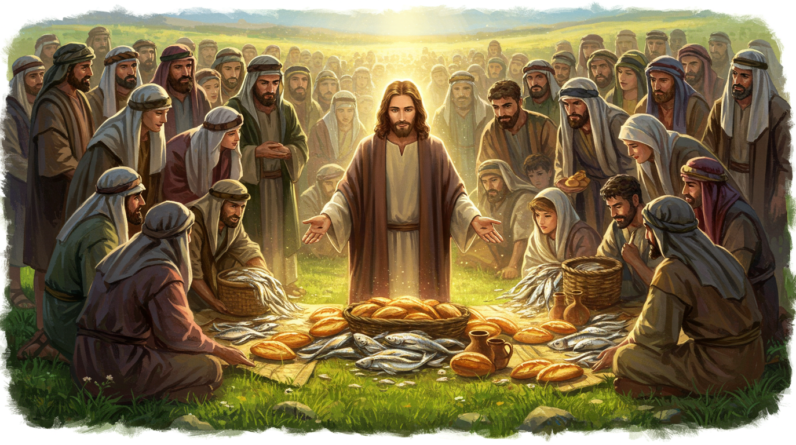Delve into the humble, transformative journey of the shepherds at Jesus’ birth in Luke 2:8-20. Discover resonant lessons of faith, simplicity, and shared joy.
The Shepherds At Jesus’ Birth – Luke 2:8-20
Christmas has long captivated the hearts and imaginations of people worldwide, and while the holiday often centers around images of stables, stars, and wise men bearing gifts, there’s another group of figures who played a significant role during Jesus’ birth: the shepherds. These humble workers, often overlooked in history and narrative, were among the first to bear witness to the Messiah’s arrival. Their story, as narrated in Luke 2:8-20, carries profound meaning, teaching lessons that resonate with us even today.

Introduction to the Shepherds
Imagine the serenity of the night’s sky pierced by the first streaks of dawn, interrupted by an angel delivering news so transformative that it altered the course of history. This scene unfolds in the hills near Bethlehem, where shepherds, quietly attending to their flocks, suddenly find themselves at the center of divine revelation. The shepherds weren’t philosophers or royalty; they were everyday people entrusted with the extraordinary task of heralding the birth of Jesus. Their role in the nativity underscores the beauty of simplicity, reminding us that significant truths often emerge from humble circumstances.
Their Story in the Bible
In the ancient world, shepherds were regarded as lowly, tasked with the constant duty of tending sheep, often away from the comforts of society. Yet, it was these very individuals who received the angelic announcement as detailed in Luke 2:8-12. As they watched over their flocks in the fields of Bethlehem, an angel appeared to them, announcing the good news of Jesus’s birth. “Do not be afraid,” the angel assured, speaking directly to hearts filled with awe and trepidation, “for behold, I bring you good tidings of great joy which will be to all people” (Luke 2:10).
Following this celestial encounter, the shepherds made haste to Bethlehem, eager to witness the fulfillment of the prophecy. Arriving at the stable, they found Mary, Joseph, and the baby Jesus, just as the angel had described (Luke 2:16). Entrusted with their newfound knowledge, the shepherds became the first evangelists, sharing with others the miraculous events they had seen and heard. Their story came full circle as they returned to their flocks, glorifying and praising God for all they had experienced.
Lessons from the Shepherds’ Lives
The shepherd’s story offers multiple lessons that resonate even in today’s world. Firstly, their tale is one of faith and obedience. Upon hearing the angel’s message, they set aside their earthly duties to seek out the divine truth. This teaches us that when divine opportunities arise, we should be ready to heed them without hesitation.
Additionally, the humility and joy with which the shepherds embraced their role remind us of the power of sharing blessings. They did not keep their remarkable experience to themselves but spread the word, igniting hope and excitement among those around them. Their actions illustrate how sharing joy multiplies it.
Lastly, the shepherds’ return to their sheep, while filled with newfound purpose and elation, highlights a return to life’s simple duties after profound experiences. This speaks to the balance needed in our lives; even after life-changing events, there’s value in finding joy in routine and simplicity.
Connection to Today’s World
In a modern context, the shepherd’s narrative speaks volumes about the importance of attentiveness to one’s purpose and being open to messages beyond the ordinary. Like the shepherds, who heard the angel’s message while fulfilling their mundane duties, we can find extraordinary revelations in our everyday lives if we remain open and attentive.
Furthermore, their story echoes the idea of universal inclusion. The choice of shepherds as the first to witness Jesus’s birth symbolizes the extension of divine grace to all, regardless of societal status, which remains a powerful message today. It encourages us to bridge divides and find common ground amidst diversity.
Historical and Cultural Context
To appreciate the full depth of the shepherd’s story, one must consider the historical and cultural context of the time. Shepherds, often regarded as outcasts, worked in a profession without prestige. Despite their humble standing, they played a crucial role in the economic foundation of the region, managing flocks that were vital to the cultural and religious practices of the time. Shepherds, aside from their societal position, were essential caretakers of the animals needed for temple sacrifices and cultural observances.
In this light, Jesus’s birth being proclaimed to shepherds first highlights God’s embrace of those marginalized by society. It aligns with biblical themes of humility and redemption, underscoring that the divine message is accessible to all, irrespective of status or occupation.

Key Bible Verse
A particularly poignant verse from their encounter is Luke 2:11: “For unto you is born this day in the city of David a Savior, who is Christ the Lord.”
This verse encapsulates the essence of the nativity announcement, expressing joy and hope, and marking the fulfillment of ancient prophecies. It’s a verse that signifies universal hope and rekindles faith, urging readers to appreciate the wonder of Jesus’s birth.
Thought-Provoking Question
As you ponder the shepherds’ story, consider this: In a world full of distractions and noise, how can you ensure that you remain attentive to hearing and sharing messages of hope and grace? How can you embrace humility and purpose in your everyday life, just as the shepherds did?
By sharing these reflections, you’re encouraged to explore the sacredness in the routine and to recognize the divine possibilities present in the most unexpected situations, just as the shepherds did over two millennia ago.







